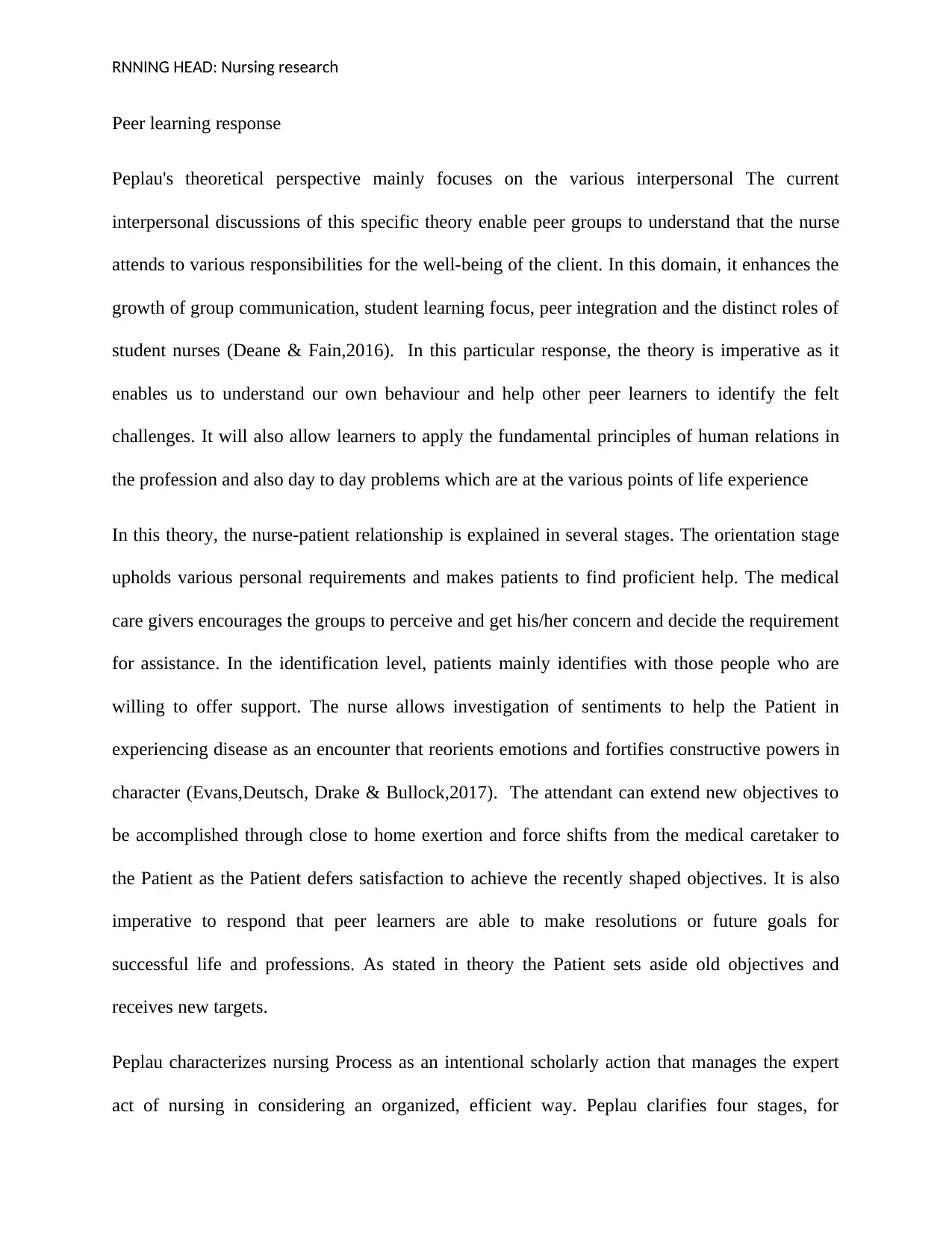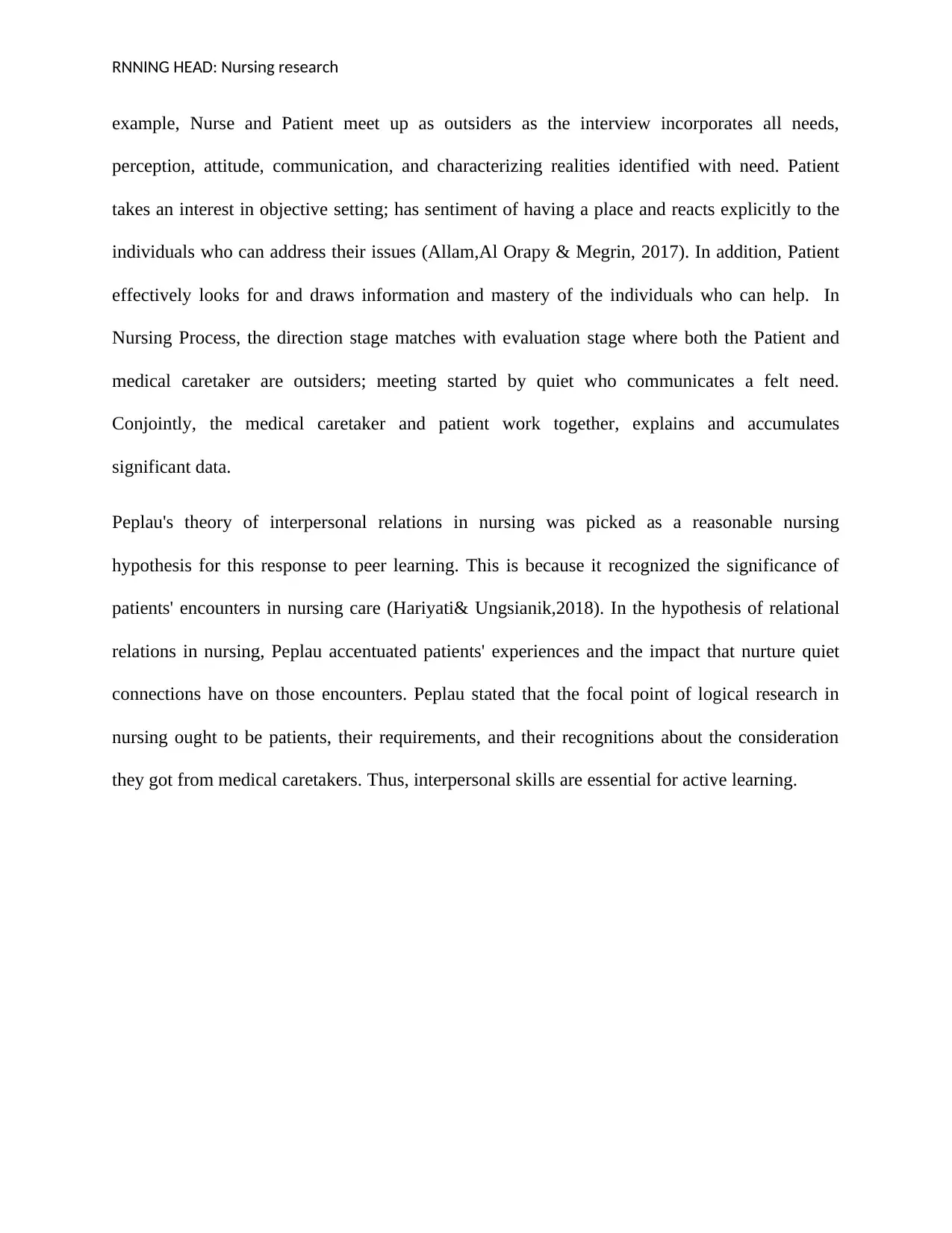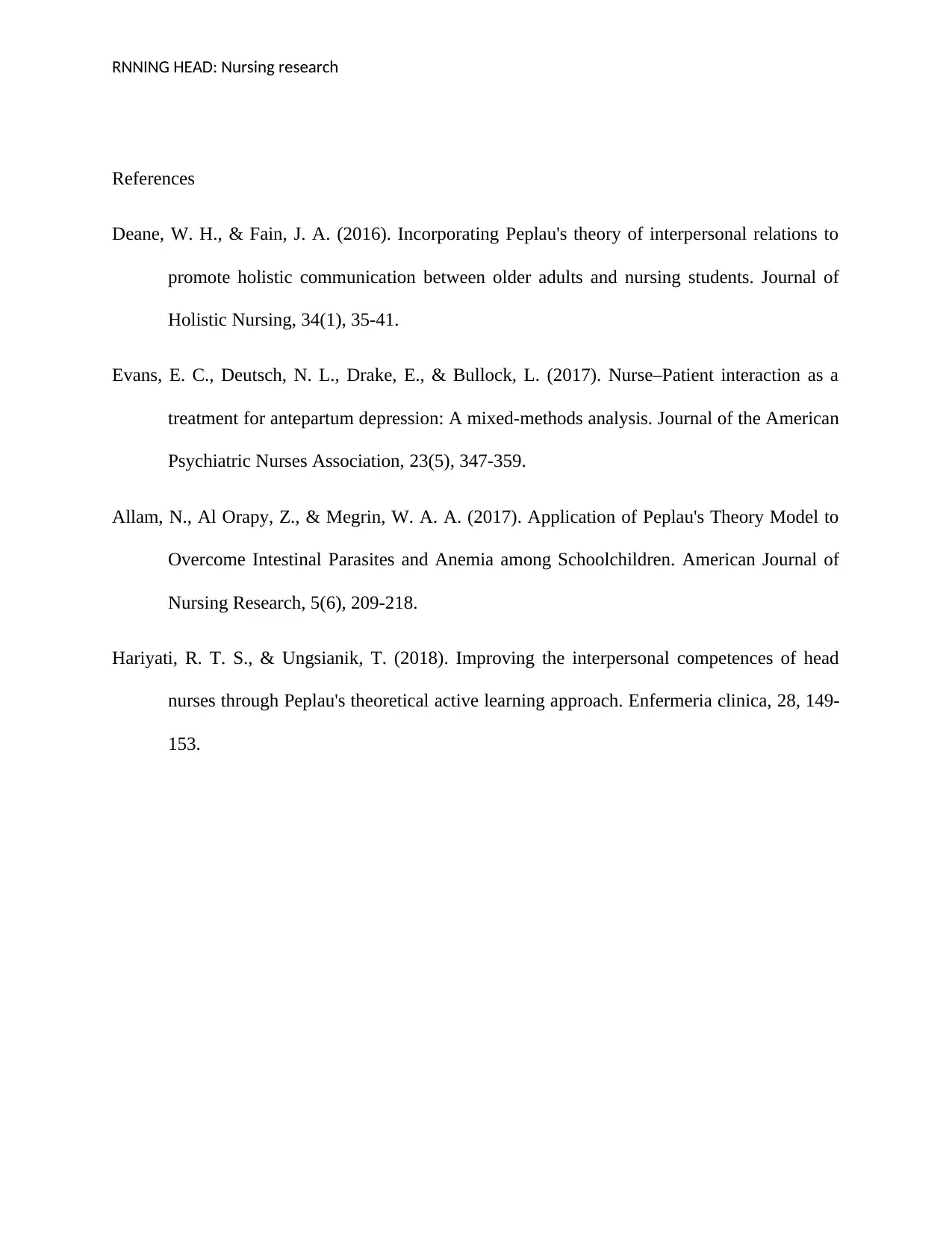Nursing Research: Peplau's Interpersonal Theory and Peer Learning
VerifiedAdded on 2022/09/14
|4
|767
|20
Discussion Board Post
AI Summary
This discussion board post examines Peplau's theory of interpersonal relations in nursing and its application to peer learning. The response highlights how Peplau's theory facilitates understanding of nurse-patient interactions, emphasizing the importance of communication and the various stages of their relationship, including orientation and identification. It explores how the theory enhances group communication, student learning, and the distinct roles of student nurses. The author discusses the practical application of the theory, particularly in how it enables peer learners to understand their behaviors and address challenges. The post also references several studies that support the theory's relevance in nursing practice, particularly in promoting holistic communication and improving patient outcomes. The response concludes by underscoring the significance of interpersonal skills in active learning and patient care.
1 out of 4





![[object Object]](/_next/static/media/star-bottom.7253800d.svg)